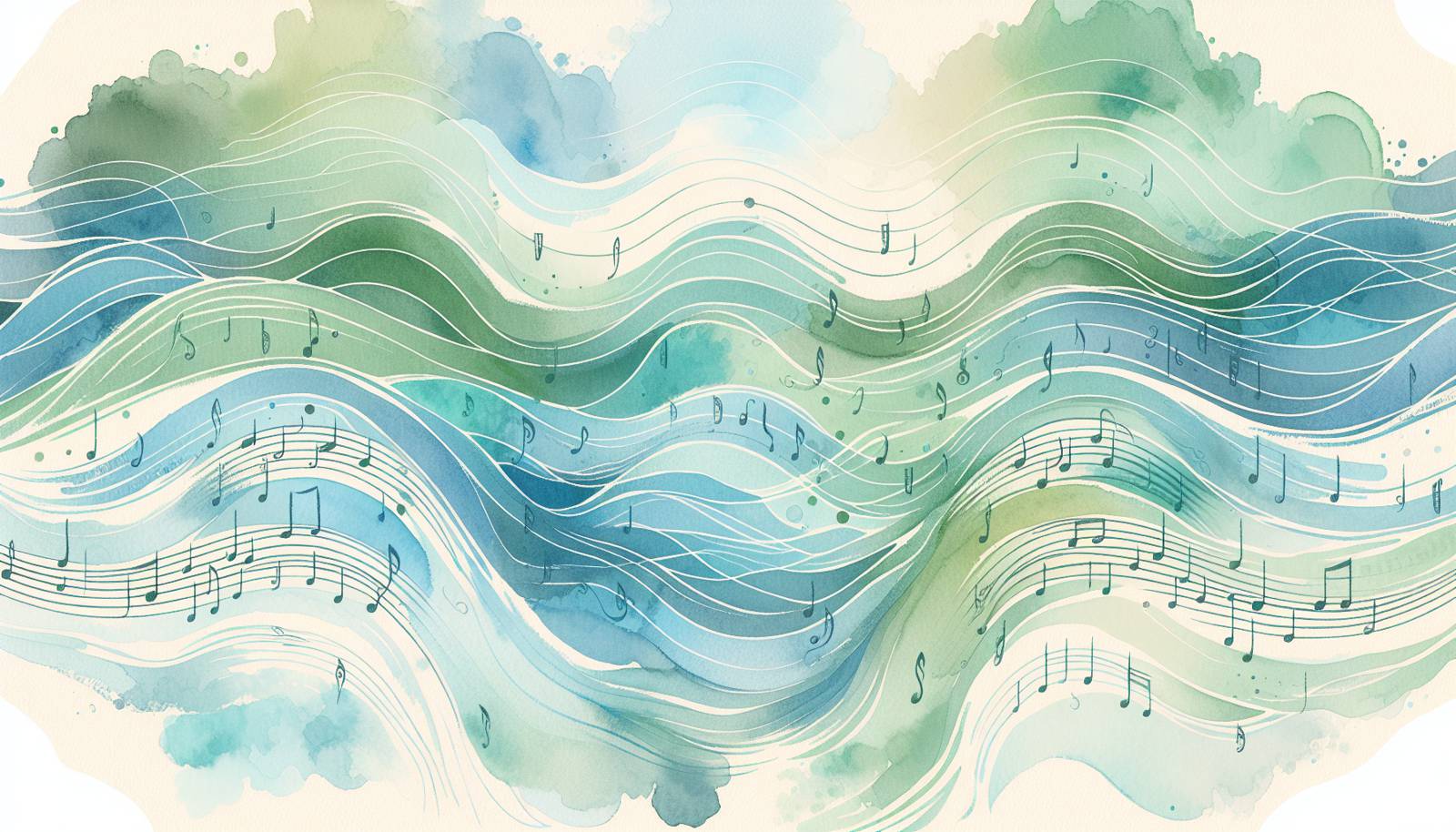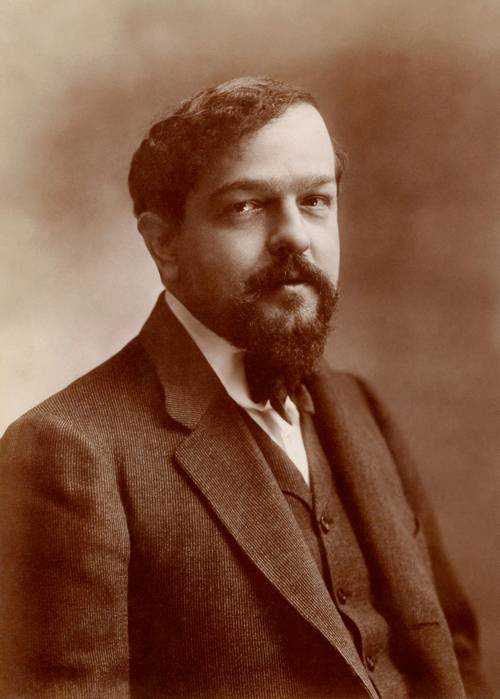
FAQ About Claude Debussy

Who was Claude Debussy?
Claude Debussy was a French composer born on August 22, 1862, in Saint-Germain-en-Laye, France. He is considered one of the most influential composers of the late 19th and early 20th centuries and is often associated with Impressionist music, although he himself did not like the term. Debussy's innovative harmonies and orchestrations mark a departure from traditional Romantic music forms, paving the way for future composers.

What are some of Claude Debussy's most famous works?
Claude Debussy is renowned for several masterpieces, including Clair de Lune, which is part of his suite Suite Bergamasque, as well as La Mer, a three-movement orchestral piece. Other notable works include the opera Pelléas et Mélisande, the piano piece Prélude à l'après-midi d'un faune, and his two sets of Préludes for piano.

How did Claude Debussy influence modern music?
Claude Debussy's use of non-traditional scales and harmonic structures, such as the whole tone scale, broke away from Romantic tonal traditions and paved the way for new musical directions in the 20th century. His music often focused on mood and atmosphere, influencing composers like Maurice Ravel and leading to further exploration in genres such as jazz and modern classical music.

What is Impressionist music, and how did Debussy contribute to it?
Impressionist music is a style that focuses on mood and atmosphere rather than structured form, much like the Impressionist art movement. Debussy's music is characterized by innovative harmonic language, use of non-traditional scales, and an emphasis on timbre and lightness. This approach is evident in works like Prélude à l'après-midi d'un faune, where he uses shimmering orchestration to evoke nature and emotion.

Did Claude Debussy only compose classical music?
While Claude Debussy is primarily known for his classical music compositions, his work transcends traditional classical music boundaries. His innovative techniques, including complex rhythms and harmonies, influenced not just classical but also jazz and popular music, demonstrating his broad impact across musical genres.

What is the significance of Debussy's <i>Clair de Lune</i>?
Clair de Lune is one of Debussy's most beloved piano pieces and exemplifies his Impressionist style. It is the third movement of his Suite Bergamasque and captures the serene and reflective qualities that Debussy is famous for. The piece remains a pivotal work in the piano repertoire, revered for its subtle use of dynamics, nuance, and harmonic color.

How did Debussy's personal life influence his music?
Debussy's personal experiences and travels significantly influenced his compositions. His exposure to Javanese gamelan music at the 1889 Paris Exposition introduced him to new tonalities and instrumental timbres, which he incorporated into his music. Additionally, his complex relationships and emotions are often reflected in the ethereal and introspective qualities of his work.

Where did Claude Debussy study music?
Claude Debussy studied music at the Conservatoire de Paris, a prestigious French institution known for its rigorous training in music and dance, from the age of 10. There, he honed his skills in composition, piano, and music theory, which laid the groundwork for his future work as an avant-garde composer.

Did Debussy win any notable awards during his lifetime?
Yes, Claude Debussy won several awards throughout his career, including the prestigious Prix de Rome in 1884 for his cantata L'enfant prodigue. This award provided him with a scholarship to study in Rome, offering him further exposure to a variety of musical influences that he later integrated into his compositions.

How did Claude Debussy's music challenge traditional forms?
Debussy challenged traditional musical forms through his use of unconventional scales and harmonies, such as whole tone scales and pentatonic melodies, which moved away from the structured tonality of Romantic music. His emphasis on subtlety, color, and non-linear progression inspired future innovations and new approaches in music composition.

What is <i>La Mer</i> by Debussy about?
La Mer is an orchestral composition by Debussy that translates to "The Sea." It consists of three movements, each depicting the ocean in various moods and times of day. The piece is celebrated for its vivid orchestration and ability to evoke the power and mystery of the sea through music.

How did World War I impact Debussy's compositions?
During World War I, Debussy's style became more introspective and nationalistic. The global conflict deeply affected him, and in response, he composed several piano works known as the En Blanc et Noir and the Douze Études, expressing both his personal turmoil and his hope for the French spirit.

What themes are prevalent in Debussy's music?
Debussy's music often explores themes of nature, the sea, mythology, and dreams. He was inspired by poetry, especially the works of French Symbolist poets, and these influences are reflected in the atmospheric and expressive qualities of his compositions. His works frequently aim to capture ephemeral beauty and impressionistic landscapes.

Did Debussy's music receive immediate acceptance or recognition?
Debussy's music was initially met with mixed reactions. While some praised his innovative techniques and unique approach, others were critical of his departure from traditional forms. Over time, however, his work gained recognition and acclaim, cementing his legacy as a pioneering composer of the Impressionist movement.

What was Claude Debussy's relationship with other composers of his time?
Debussy interacted with several contemporaries, including Erik Satie, Maurice Ravel, and Igor Stravinsky. Although he often had a contentious relationship with other composers due to differing artistic visions, Debussy maintained a mutual respect with many, influencing and inspiring each other through their work.

How did Debussy view the term 'Impressionism' in relation to his music?
Although often labeled an Impressionist, Debussy himself disliked the term and preferred to refer to his music as a depiction of light, color, and atmosphere. He believed his music was an expression of personal emotion and imagination, transcending the categories created by critics and music historians.

What instruments did Debussy favor in his compositions?
Debussy favored various instruments, but he is particularly known for his innovative use of the piano, which he employed to create rich, colorful harmonies and nuanced soundscapes. He also explored orchestral and chamber music, using instruments like the flute, harp, and strings to create evocative and textural effects.

When did Claude Debussy pass away, and what was his legacy?
Debussy passed away on March 25, 1918, during World War I. His death was a significant loss to the music world, yet his legacy lives on through his innovative compositions. Debussy's music continues to influence and inspire musicians and composers worldwide, leaving a lasting imprint on the course of modern music.

What was the role of poetry and literature in Debussy's work?
Poetry and literature played a crucial role in Debussy's music, providing inspiration and thematic material. He was particularly inspired by French Symbolist poets such as Stéphane Mallarmé and Paul Verlaine. Their influence is apparent in his focus on mood, symbolism, and evocative soundscapes rather than narrative storytelling.

How does Debussy's use of scale and harmony differ from his predecessors?
Debussy's use of scale and harmony departed significantly from his predecessors by employing whole tone scales, pentatonic scales, and unconventional chord progressions which distanced his work from traditional tonal structures. This approach created a sense of ambiguity and fluidity, a hallmark of his pioneering Impressionist style.
